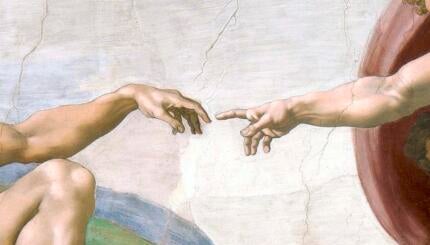With so much at stake during this time of national division, I am finding a lot to admire in Timothy Snyder’s great new book, On Freedom. For students of history, and in particular of the evils of totalitarianism, fascism and the Holocaust, Snyder’s work is indispensable. His earlier works Bloodlands and Black Earth reframed our understanding of the First and Second World Wars and warned of the need for constant vigilance in protecting human freedom. His small but powerful volume, On Tyranny, is a must read.
Snyder’s latest was written in the wake of the author’s near-death experience (burst appendix and sepsis) and is consequently partly autobiographical. He writes from a place of reemergence into life, infused by a reaffirmed commitment to make the world a better place. Snyder argues that doing this begins with understanding the foundational ideas that animate our notions of freedom and democracy. One is not simply free, he claims, but must test ideas like freedom over and over again, “not from an enclosing cave but from an opening world.”
Snyder notes that most people define freedom in negative terms — essentially, as the right to be left alone to do one’s own thing. Positive freedom requires us to know what we are for, what we will do with our freedom, what we will create and how we might understand those actions in terms of their effect on others.
“Freedom and security work together,” he writes. “The preamble of the Constitution instructs that the ‘blessings of liberty’ are to be pursued alongside ‘the general welfare’ and ‘the common defense.’ We must have liberty and safety. For people to be free, they must feel secure, especially as children. They must have a chance to know one another and the world. Then, as they become free people, they decide what risks to take, and for what reasons.”
With your help, My Jewish Learning can provide endless opportunities for learning, connection and discovery.
At the core of this endeavor is empathy, which Snyder sees as a precondition for understanding the world. Snyder grounds this idea in the philosopher Simone Weil’s idea of “love thy neighbor as thyself,” which Weil asserts “implies that we love ourselves as strangers.” Snyder writes of Weil here: It is not just that we do right when we love a stranger. It is that we see ourselves as a stranger might see us, see what is strange in us, which is what we need to see.”
In this week’s Torah portion, God commands Abraham to leave the place of his birth and to go forth to a land that God promises to show him. This willingness to go forth, this propensity to look beyond the self, is in fact what makes Abraham fit to earn God’s praise. “I will make of you a great nation, and I will bless you,” God promises Abraham. “I will make your name great, and you shall be a blessing.”
Consider Abraham’s predecessors in the Torah’s generational history. Adam and Eve were relatively content eating fruit in the Garden of Eden until they were suckered into disobeying God’s command to not eat from the Tree of Knowledge of Good and Evil. They did not go forth; they were banished. Similarly, Cain offers a meager sacrifice to God, indulges in the throes of his own self-pity, and is banished for murdering his brother. Noah, righteous compared to everyone else in his generation (but not in comparison to future generations, according to Rashi and others), goes along to get along. He doesn’t go forth either. He puts his head down and follows orders.
It is Abraham who walks on to the stage of human history as the first Jew, an exemplar of the command to move beyond the self. He heeds the command to leave all that is most familiar to him — his native land, his birthplace, his childhood home. He breaks his father’s idols (as the Midrash teaches) and in doing so takes great risks to evolve into this new freedom. And when God vows to destroy Sodom and Gomorroh, Abraham uses his freedom on behalf of others, demanding that God save innocent lives.
It is precisely Abraham’s willingness to move beyond the self that lays the groundwork for his foundational contributions to a Jewish social ethics of freedom. In heeding God’s call to go forth, Abraham demonstrates that freedom is not a matter of being left alone to do one’s own thing, but is rather, in the words of the philosopher Emmanuel Levinas, the ability to “hear a voice” and “accept obligation toward the one speaking.” Hearing the voice of the other from the place of one’s freedom is what Levinas called “a movement toward the other which does not come back to its point of origin.” The Torah is teaching us that freedom is found in such times where we must leave our safest place, our place of origin, to find out who we are truly meant to be.
In these fraught times for our nation, may we breathe new life into our nation’s foundational ideals of life and liberty. May our freedom inspire us to go forth, see our neighbors for who they are and who they are yet to be, and show all the kindness and love that we can muster.
This article initially appeared in My Jewish Learning’s Shabbat newsletter Recharge on November 9, 2024. To sign up to receive Recharge each week in your inbox, click here.



